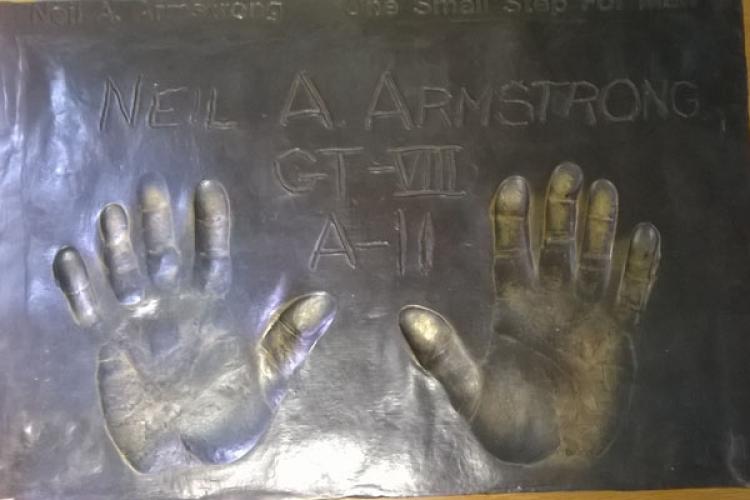
Sarah Wyatt among 18 scientists leading nation's space research agenda for living on moon, Mars

Sarah Wyatt is one of 18 U.S. scientists who led the formulation of the nation's ambitious 10-year research roadmap to support humans traveling to the moon and Mars.
"Thriving in Space," the Decadal Survey on Biological and Physical Sciences Research in Space 2023-2032, was released Sept. 12 by the National Academies of Sciences, Engineering and Medicine.
For Wyatt, an experienced NASA researcher with four experiments already flown on the International Space Station, working on the steering committee for the nation's space plan was just short of her ultimate dream. She's wanted to be an astronaut since she was 10.
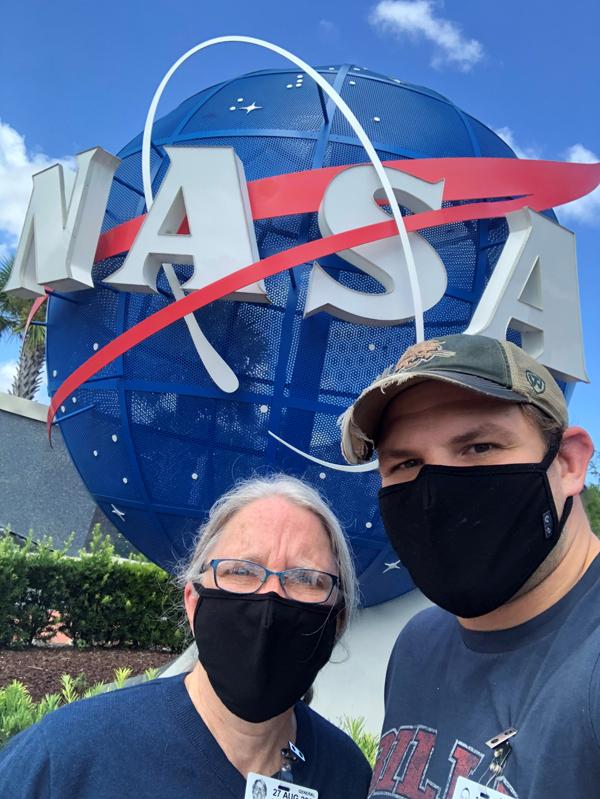
Wyatt spent two years among the nation's top biological and physical scientists, documenting what has been accomplished over the past decade and delineating the key areas where funding should be aimed in the next 10 years.
"Getting to work with that group, each an expert in their field with the different perspectives—the sheer magnitude of the knowledge in that room was incredible," said Wyatt, professor of environmental and plant biology in the College of Arts and Sciences at Ohio University.
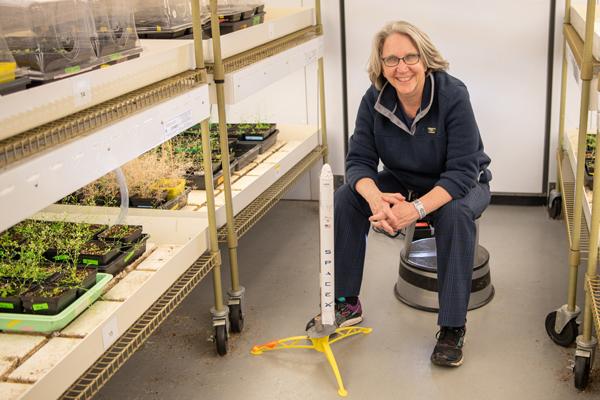
Since Wyatt's visits to the Kennedy Space Center are to the science labs and not the astronaut training facilities, her expertise is aimed at how people might grow plants for food, medicine and oxygen in a microgravity environment.
What is she most excited about among the future directions in the Thriving in Space plan?
"The possibilities of what we might learn, insights into our place in the universe, and the implications for better understanding our place on Earth," Wyatt said.
The scientists are ready for the challenges that lie ahead.
"But funding is always a huge hurdle," Wyatt said. "There are so many possibilities to expand our knowledge, but limited resources."
Thriving in Space leads with a call for support of the United States' "unprecedented opportunity to lead the way to the Moon and Mars" through NASA’s BPS (Research in Biological and Physical Sciences in Space) program.
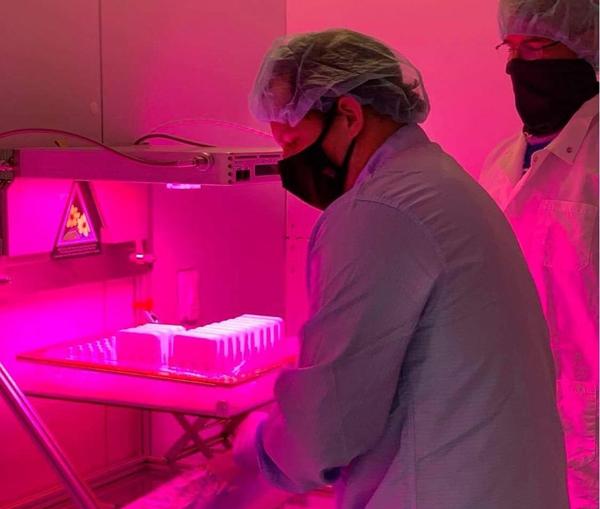
What's on the agenda for science in space?
Wyatt and other scientists on the decadal steering committee identified key scientific questions under three themes that need to be explored as part of the United State's future ability to "travel and prosper in space sustainably, all while returning benefits to Earth," according to the report:
- Adapting to Space: Life in space operates differently than life on Earth. It is critical to understand how the space environment impacts human beings as well as the plants and microbes that will be part of future habitat systems.
- Living and Traveling in Space: Human exploration of the Moon and Mars will require longer-duration space missions. For these missions to be successful, it is important to understand how biological and hardware systems interact over the course of years, as well as how to derive resources to sustainably explore new places.
- Probing Phenomena Hidden by Gravity or Terrestrial Limitations: Fundamental processes that are not observable on the Earth can be readily seen in spaceflight when gravity is removed from the equation. Space-based laboratories provide the opportunity for major science gains.
The third one, probing phenomena hidden by gravity is Wyatt’s favorite. As she tells audiences, for her, spaceflight is the control. "For any experiment, you need a treatment and control. If you want to learn more about how organisms respond to gravity, you need to see what they do with no gravity (or very little). ISS provides that opportunity."
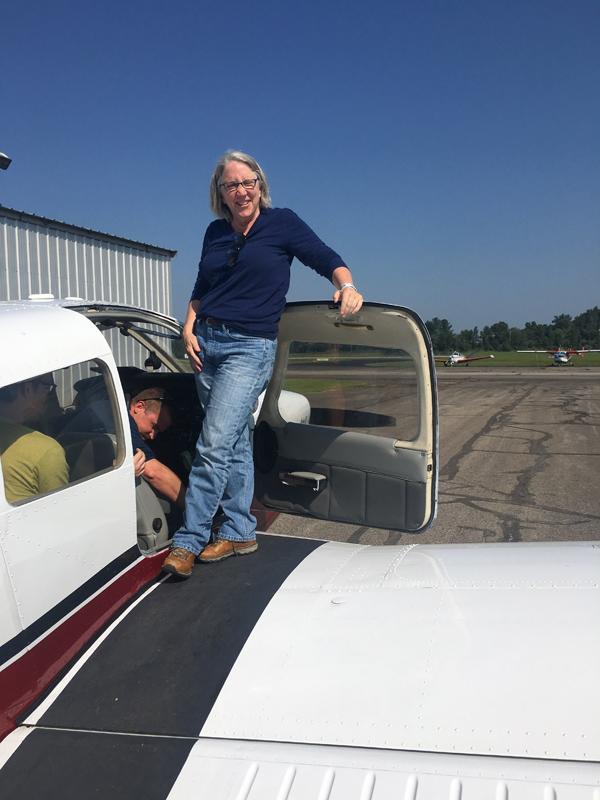
Who is Sarah Wyatt?
An internationally renowned plant molecular biologist, Wyatt is found most days in her fifth-floor lab in Porter Hall at Ohio University in Athens, surrounded by undergraduates as well as graduate students at work on projects surrounding how plants respond to microgravity.
Her lab sits next door to the OHIO Genomics Facility, which she helped start in 2007, which makes it handy for students to get their samples sequenced. She's also surrounded by snacks like M&Ms or Oreo cookies, which she's found are vegan friendly for students.
Wyatt is also chair of the OHIO Faculty Senate and previously served as director of the multi-disciplinary graduate program in molecular and cellular biology. She's won most of OHIO's teaching and research awards, some of them more than once.
Wyatt was one of two scientists elected this summer to the American Society of Plant Biologists Board of Directors. In 2020, Wyatt was named a fellow of the American Society of Plant Biologists as well as to the inaugural cohort of Sigma Xi Fellows, the scientific research honor society, for her distinguished accomplishments and contributions in research, teaching and outreach.
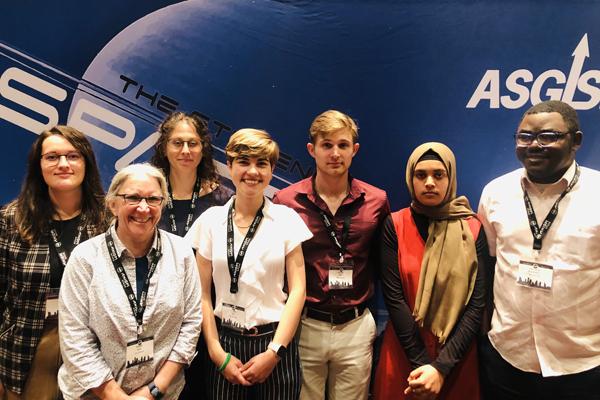
Wyatt's leadership at OHIO also included founding the Ohio University Science Café tradition that brings scientists from across campus to the Baker University Front Room to talk about their science with a broad audience of students and community members.
When she and her students aren't in the lab, they might be presenting at the ASPB annual meeting in Savannah, Georgia, or Montreal, Canada; running Plant Science Saturday at the ASPB meeting, or developing Tech Savvy events to get middle school girls interested in science.
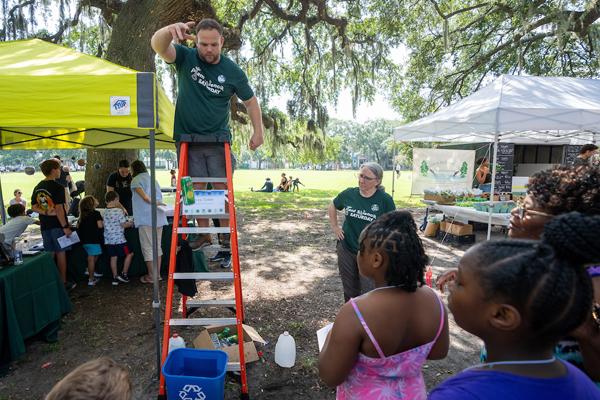
And what's her next experiment on the ISS?
Contrary to the common picture of plants growing up because of the sun, there are small pieces of RNA in a plant that tell it to send the roots "down" and the shoots "up" in response to gravitational forces.
Wyatt has sent four experiments to the International Space Station so far – with a fifth awaiting a launch date.
The future of long-duration space travel and exploration missions to the moon and Mars will require plants for food production, carbon dioxide removal, oxygen production and water purification. But extended exposure to the extreme environmental factors that accompany spaceflight, which include microgravity and ionizing radiation, have profound and largely unknown health effects on biological systems.
So Wyatt's next experiment will study the effect of space radiation on plant telomeres.
"We have conducted numerous plant experiments in microgravity on the International Space Station. And while radiation exposures induce stress responses in plant systems, we now hope to better understand the mechanisms underlying spaceflight-induced plant stress responses, plant genomic adaptation to spaceflight environments, and long-term plant viability under different space radiation scenarios," said Wyatt, who has extensive experience in the design and implementation of spaceflight experiments using Arabidopsis.
